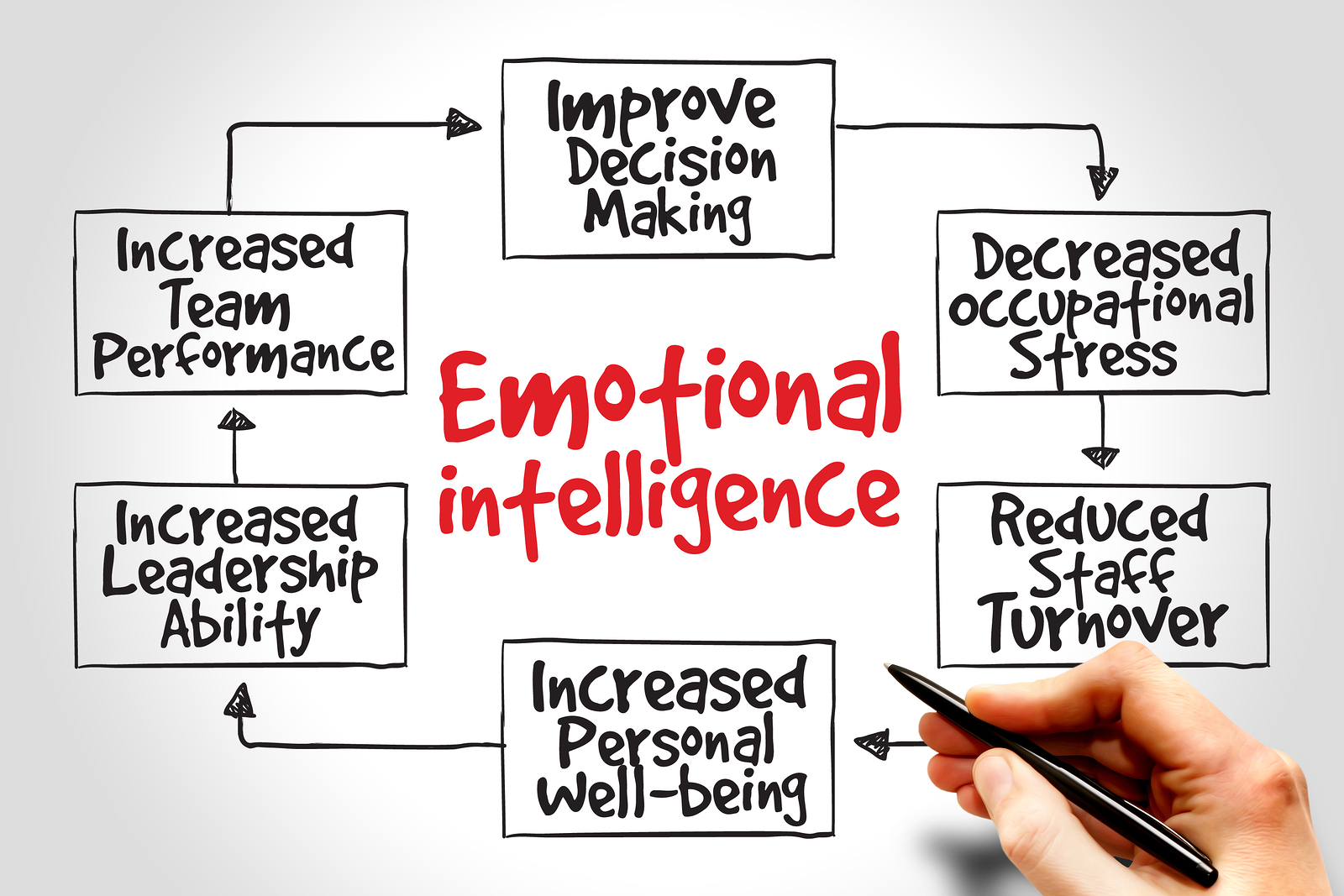

“We should take care not to make the intellect our God.
It has, of course, powerful muscles, but no personality. It cannot lead, it can only serve.” – Albert Einstein
Emotional Intelligence (EI) can be defined as the capability of individuals to recognize their own, and other people’s emotions, to discern between different feelings and label them appropriately, to use emotional information to guide thinking and behaviour, and to manage and/or adjust emotions to adapt environments or achieve one’s goal(s).
There are many benefits of emotional intelligence, including:
- More productive communication
- Reducing anxiety and stress
- Defusing conflicts
- Empathizing with others
- Improving relationships
- Effectively overcoming life’s challenges
The successful life journey has both IQ and EI in the backpack. Here are two simple lessons to help demonstrate emotional intelligence in life, work, and leadership.
We demonstrate emotional intelligence when we can both perceive and express our emotions.
When we ask people,“How are you feeling?”, they generally share an array of answers that include words such as “happy,” “curious,” “tired,” “hungry,” “good,” and “fine.” Most of our answers to this simple and everyday question are ‘technically’ wrong! Emotional intelligence is being both emotionally self-aware and literate, which is an ability to perceive and express emotions. There are six basic human emotions that cross all cultures: anger, fear, disgust, surprise, happy, and sad. Anyone who answers “How are you feeling?” with one of these emotions or a similar version, is technically correct and demonstrating emotional intelligence. Anyone who provides an answer that describes their mental state (i.e. “curious”), their physical state (i.e. “tired” or “hungry”), or their judgment of themselves (i.e. “good” or “fine”), was ‘technically’ incorrect. An important part of emotional intelligence is the ability to notice our emotions, to label specific feeling in ourselves and others, and to communicate these verbally.
We demonstrate emotional intelligence when we own both our feelings and changing our feelings.
When we correctly identify how we feel, this helps us to identify the reason for the emotion and our potential needs if we want to change our feelings. We are 100% accountable for how we feel: past, present and future. No one can make us feel anything unless we allow them. As Eleanor Roosevelt said, “No one can make you feel inferior without your consent.” It isn’t another person or situation that makes us feel, it’s our interpretation of the other person’s action or situation that makes us feel. Our interpretation is where we give our consent or not. For a simple example, that’s why not every single person will always cry, laugh or be scared by the same scene in a movie. To feel sad, happy or fearful in a movie, we have to interpret what’s happening on the big screen as being sad, happy or scary.
Emotions are a result of neurotransmitters/chemicals triggered in our bodies. The trigger is our brain and thought process. There’s also research in emotional intelligence which states that the neurotransmitters/chemicals which influence feelings have an initial lifespan of approximately 20 minutes when triggered. So when we feel things longer than 20 minutes, there is typically one of two reasons why:
- We’re still in a situation, having an experience with someone or something, that we interpret in such a way that continues to trigger neurotransmitters/chemicals which continue the emotions.
- We’re no longer in the situation, and the experience with someone or something is over, but we’re still thinking about the experience and our interpretation of it, which continues to trigger neurotransmitters/chemicals which continue the emotions.
So if we want to feel something different, here are some options that might help:
- Remove ourselves from the situation, so we no longer have the experience with someone or something.
- Think about something different, so we ‘let go’ in our minds of the experience with someone or something.
- Take some kind of action to change the situation, so the experience with the someone or something is different, which may include expressing our feelings and asking for help.
Emotional intelligence has research and proven results behind it, establishing a presence in the field of personal and professional development. If you would like to gain insights on your own emotional intelligence, this article provides great reflection from Dr. Travis Bradberry, a leader in this field. If you would like to develop your own emotional intelligence further, here is a great complimentary resource for your consideration.
Perhaps emotional intelligence can help fuel the personality to lead that Einstein references in his quote?
